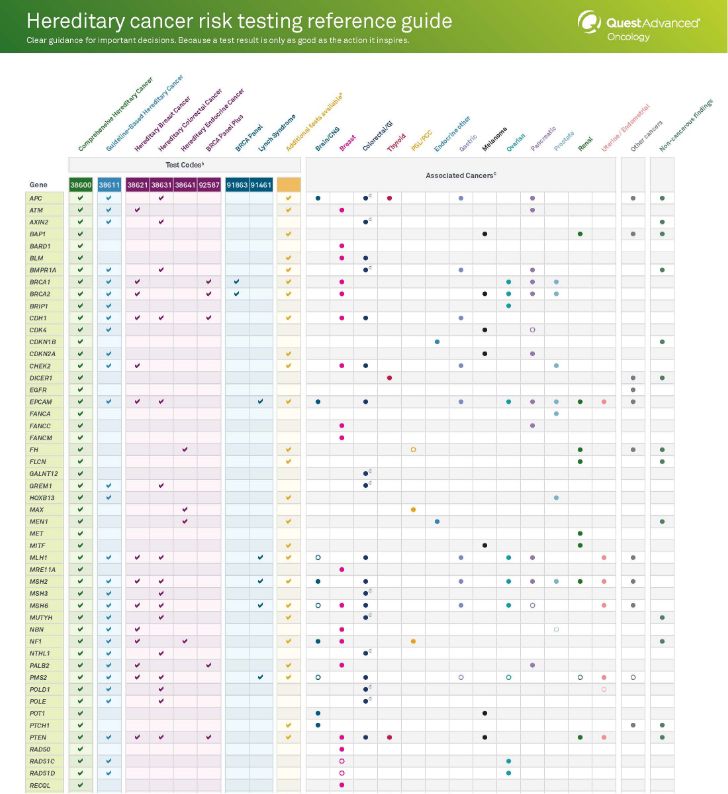Certain things make it more likely that cancers in a family are caused by a hereditary cancer syndrome, such as:
- Many cases of the same type of cancer (especially if it is an uncommon or rare type of cancer)
- Cancers occurring at younger ages than usual (typically cancer in someone younger than 50 years old)
- More than 1 type of cancer in a single person (such as a person with both breast and ovarian cancer)
- Cancers occurring in both of a pair of organs (such as both eyes, both kidneys, or both breasts)
- Cancer occurring in the sex not usually affected (such as breast cancer in a male)
- Cancer occurring in multiple generations (such as in a parent, child, and grandchild)








